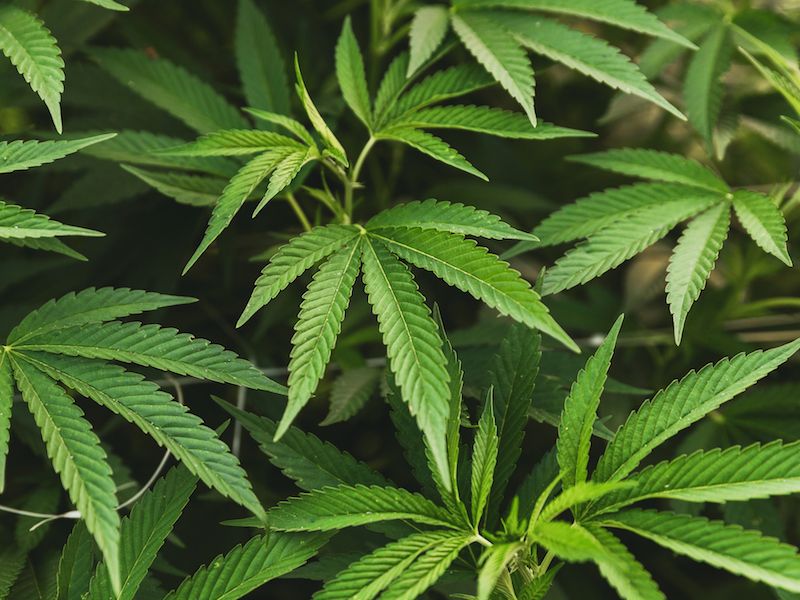
Public opinion surrounding marijuana and cannabinoids have transformed remarkably over the last few decades. THC, cannabinoids, and even marijuana are legal for medical use in most states. A decade ago it would have been unthinkable for marijuana to be legal for recreational usage but some states have even passed this law.
Cannabinoids are categorized as a group of compounds produced from the cannabis or marijuana plant. Regardless of their recent legalization in certain states, we’re still learning new things about cannabinoids. We usually consider these particular compounds as possessing universal healing qualities, but established research implies there could also be negative impact such as a strong link between cannabinoid use and the occurrence of tinnitus symptoms.
Cannabinoids Have Numerous Types
There are many forms of cannabinoids that can be used now. It’s not just pot (or refer, or grass… look, let’s just all agree right now that marijuana has a significant number of nicknames and move on). These days, THC and cannabinoids can be obtained in pill form, as lotions, as inhaled vapor, and more.
The types of cannabinoids available will vary state by state, and under federal law, many types are still illegal if the THC content is over 0.3%. That’s why some people tend to be rather careful about cannabinoids.
We still require more research and experience before we will truly comprehend the long term and side effects of cannabinoids. Some current research into how cannabinoids influence your hearing is a prime example.
Cannabinoids And Your Hearing, Some New Studies
Whatever you want to call it, cannabinoids have long been connected to improving a wide variety of medical ailments. According to information that is anecdotally available, conditions including vertigo, nausea, seizures, and many more appear to be helped by cannabinoids. So could cannabinoids help with tinnitus? That’s what scientists decided to figure out.
Tinnitus could actually be triggered by cannabinoid use, as it turns out. Ringing in the ears was reported by over 29% of participants after implementing cannabinoids. And that’s in people who had never dealt with tinnitus before. Furthermore, marijuana users were 20-times more likely to report having tinnitus symptoms after 24 hours.
And for those who already suffered from tinnitus, marijuana use caused it to get worse. This basically means, there’s some very strong evidence that cannabinoids and tinnitus don’t really mix all that well.
How Cannabinoids Make Tinnitus Worse
There are a couple of tangible ways that cannabinoids can make your tinnitus experience worse. First, the incidents of tinnitus symptoms can become more consistent, you might notice the ringing or buzzing in your ears more frequently. Cannabinoids can also make those tinnitus episodes more overwhelming. The discomfort from the ringing may become more noticeable or harder to just ignore.
The research also seems to reveal that cannabinoids are capable of causing the development of the initial symptoms of tinnitus. To put it a different way: after you begin using cannabinoids you could start to experience tinnitus symptoms even if you didn’t have them before.
The Causes of Tinnitus Are Unknown
We know that there’s a link between tinnitus and certain triggers but we’re still uncertain what the actual root causes are. It’s clear that cannabinoids can have an effect on the middle ear and tinnitus symptoms. But it’s much less clear what’s causing this impact.
But we recognize that using marijuana, in contrast to other mood altering substances such as alcohol, will cause tinnitus.
Of course, we will continue to do the research. Cannabinoids today come in so many varieties and forms that understanding the root connection between these substances and tinnitus would help people make smarter choices.
Beware The Miracle Cure
In recent times there has been a lot of hype created around cannabinoids by marketers. That’s partly because perceptions are changing about cannabinoids (and, to some extent, is also a reflection of a desire to move away from opioids). But this new research makes clear that cannabinoids can and do produce some negative effects, particularly if you’re concerned about your hearing.
The marketing about cannabinoids has been very assertive and you can’t completely escape all of the enthusiasts.
But this new research certainly reveals a solid link between cannabinoids and tinnitus. So if you have tinnitus, or if you’re worried about tinnitus it might be worth keeping away from cannabinoids if possible, regardless of how many ads for CBD oil you might run into. The link between cannabinoids and tinnitus symptoms has been quite securely demonstrated by the research, so it’s worth exercising a little caution.